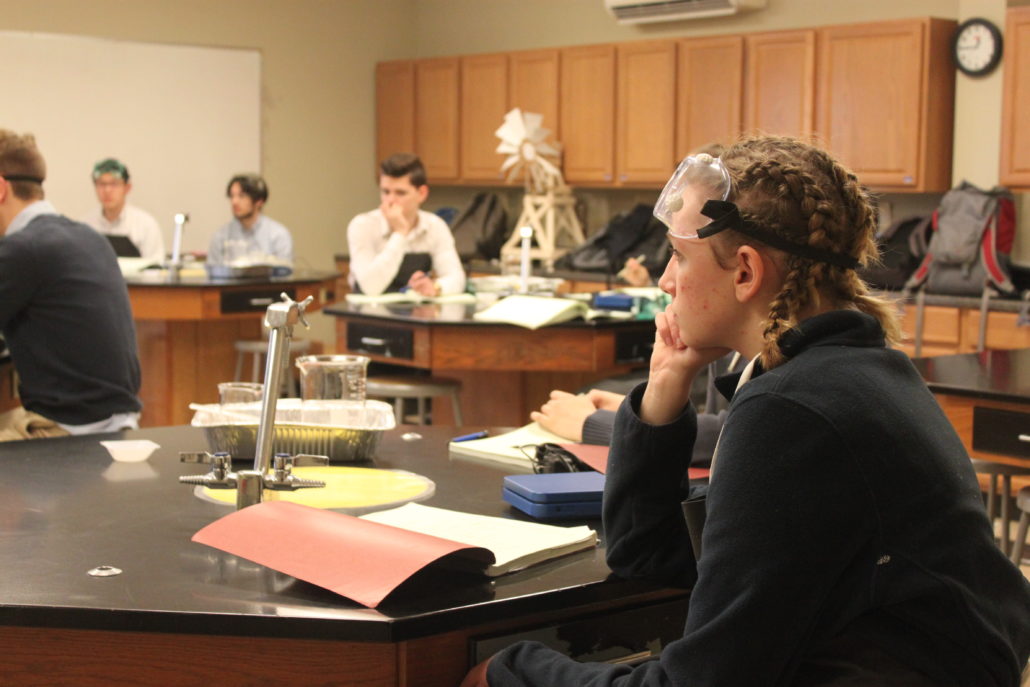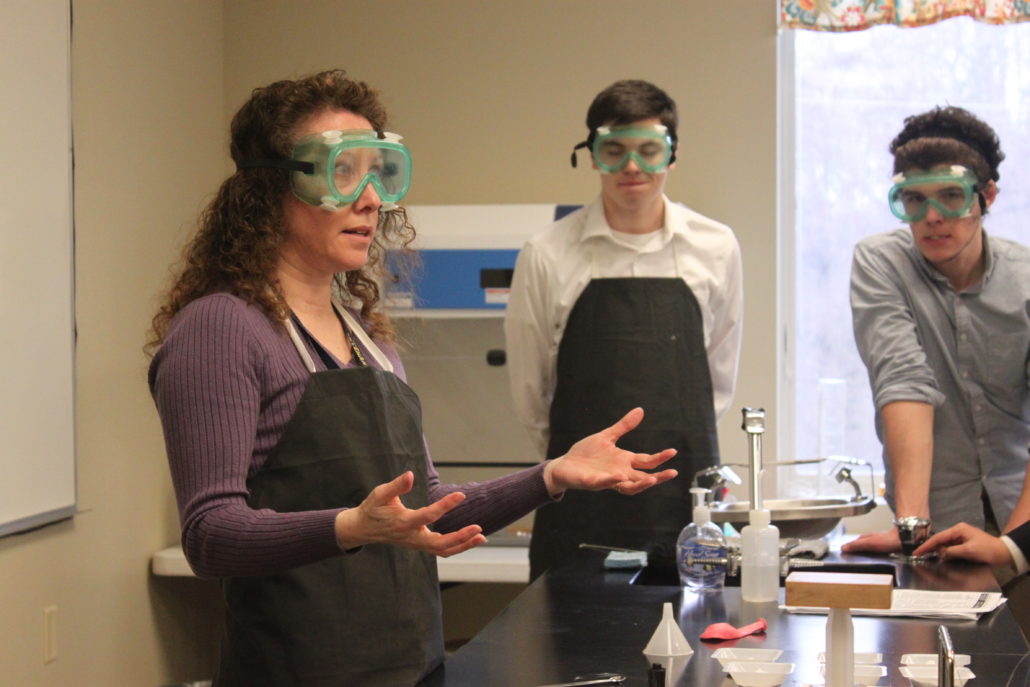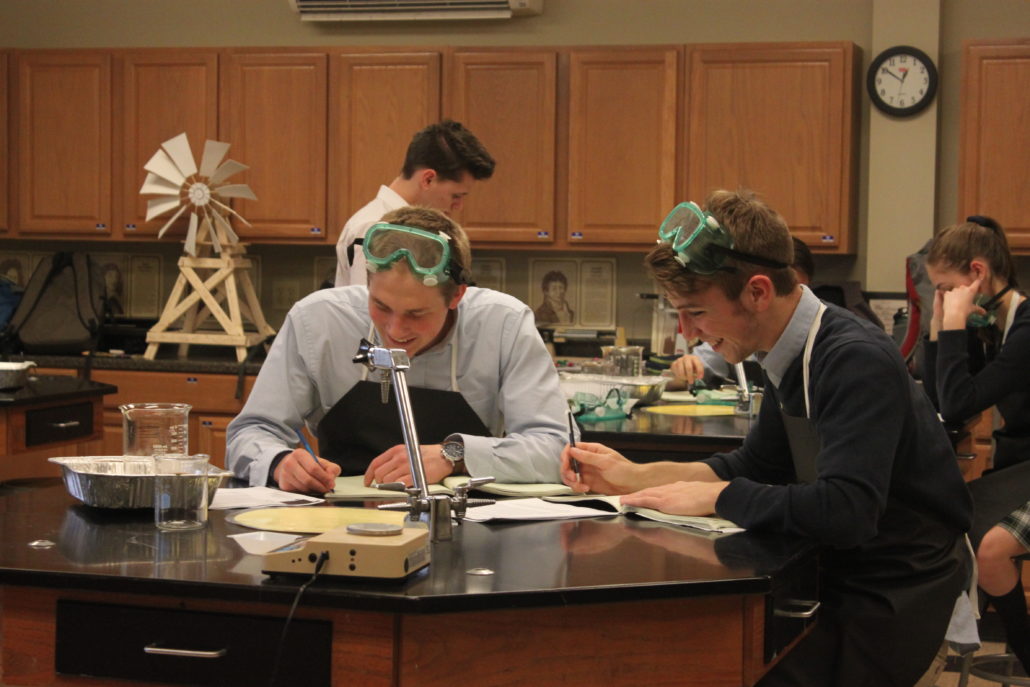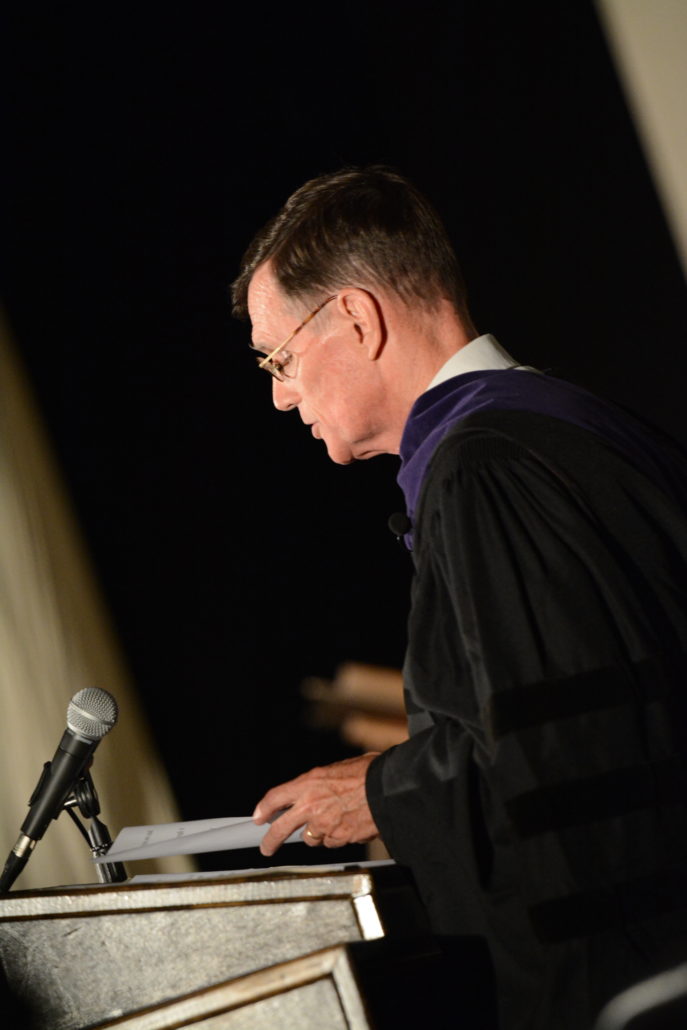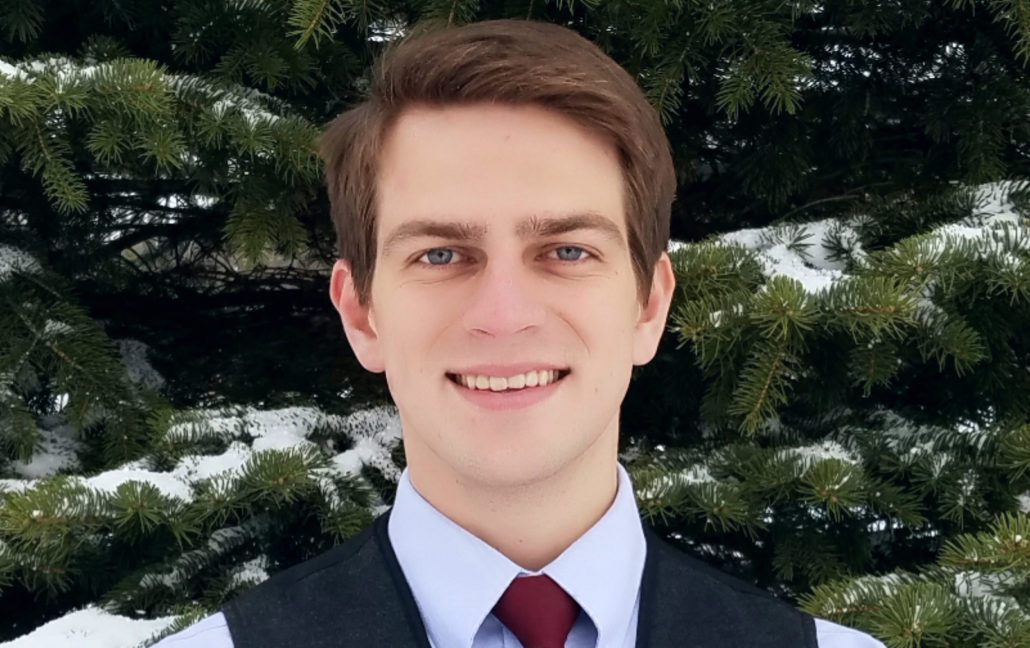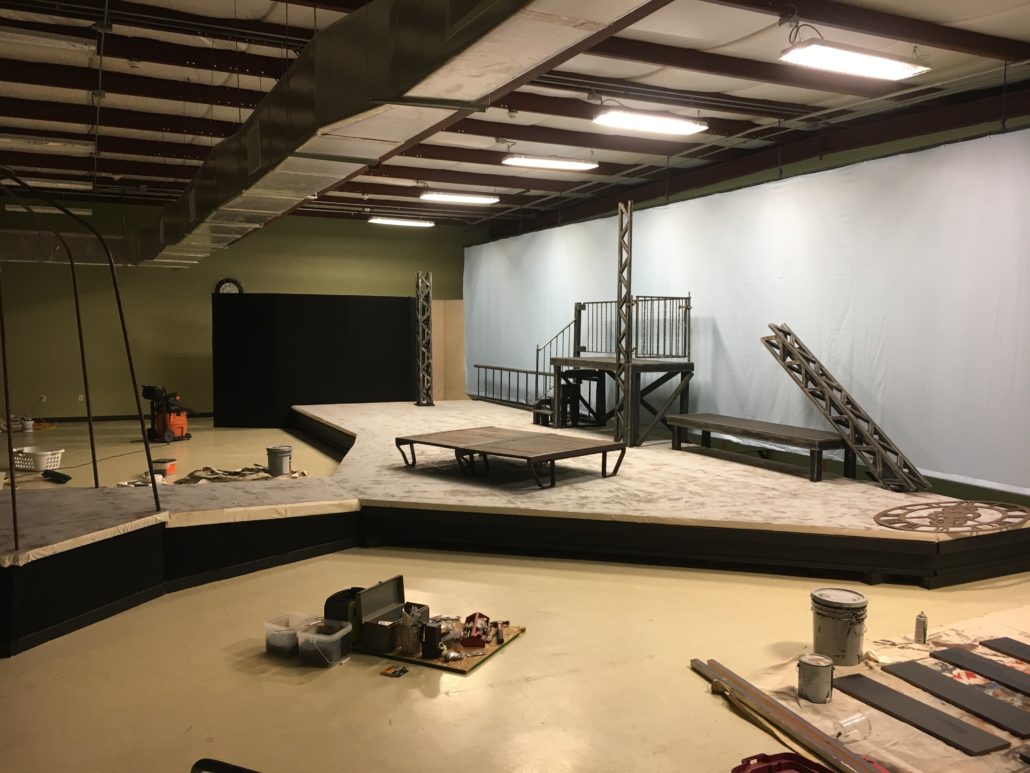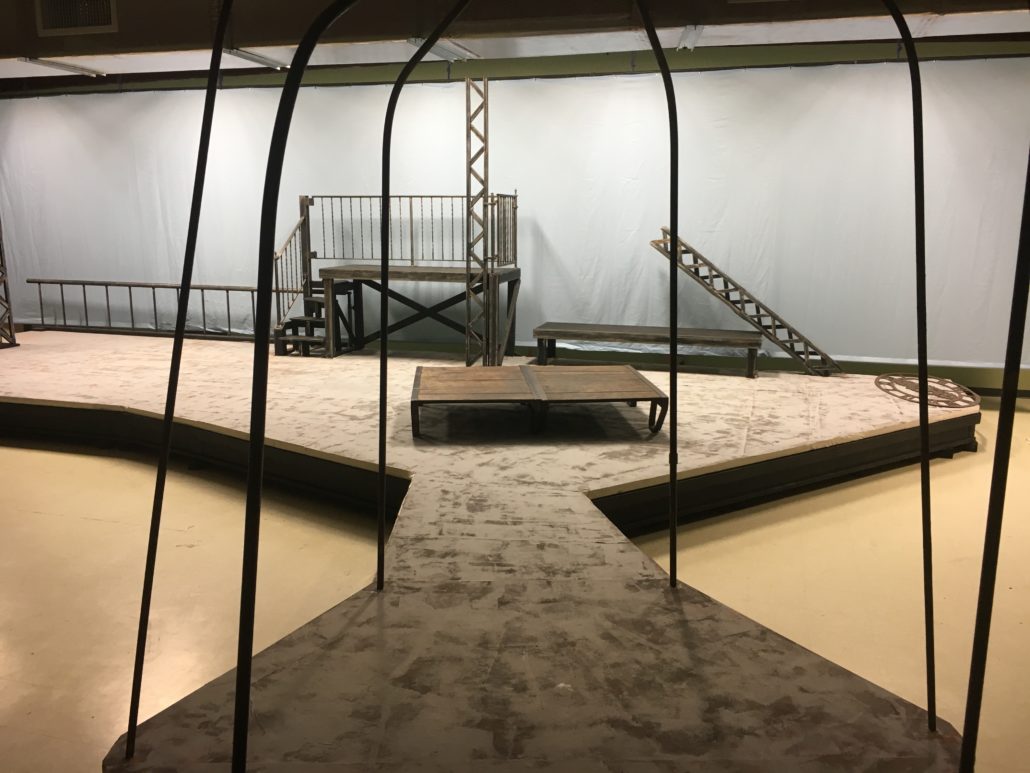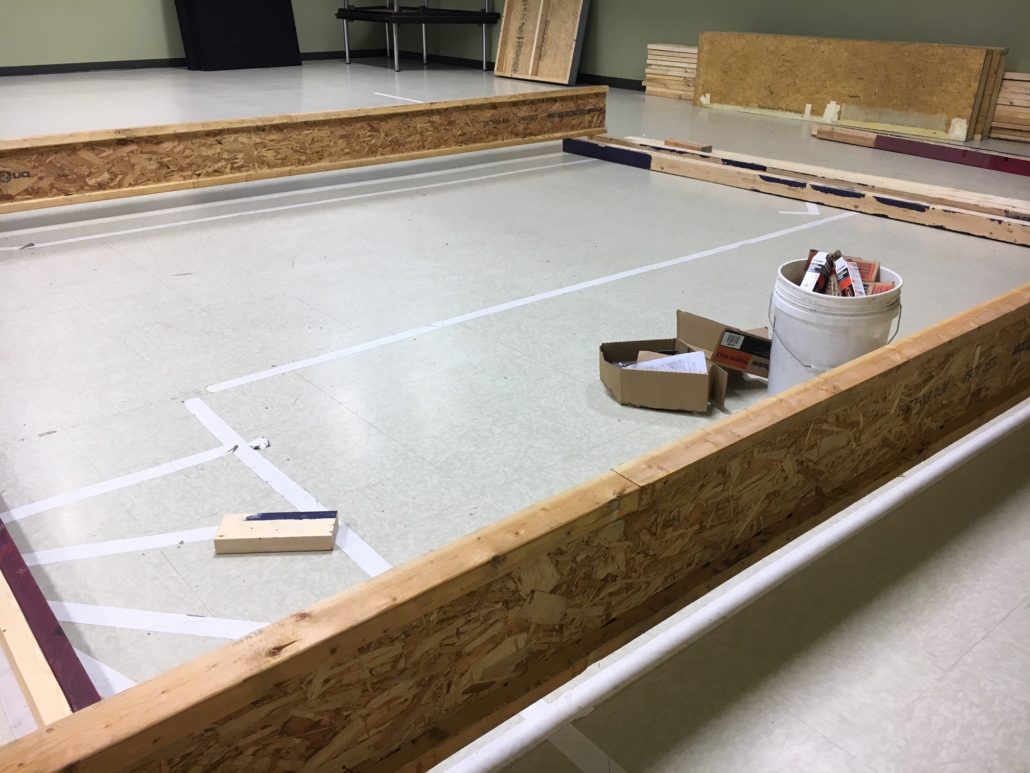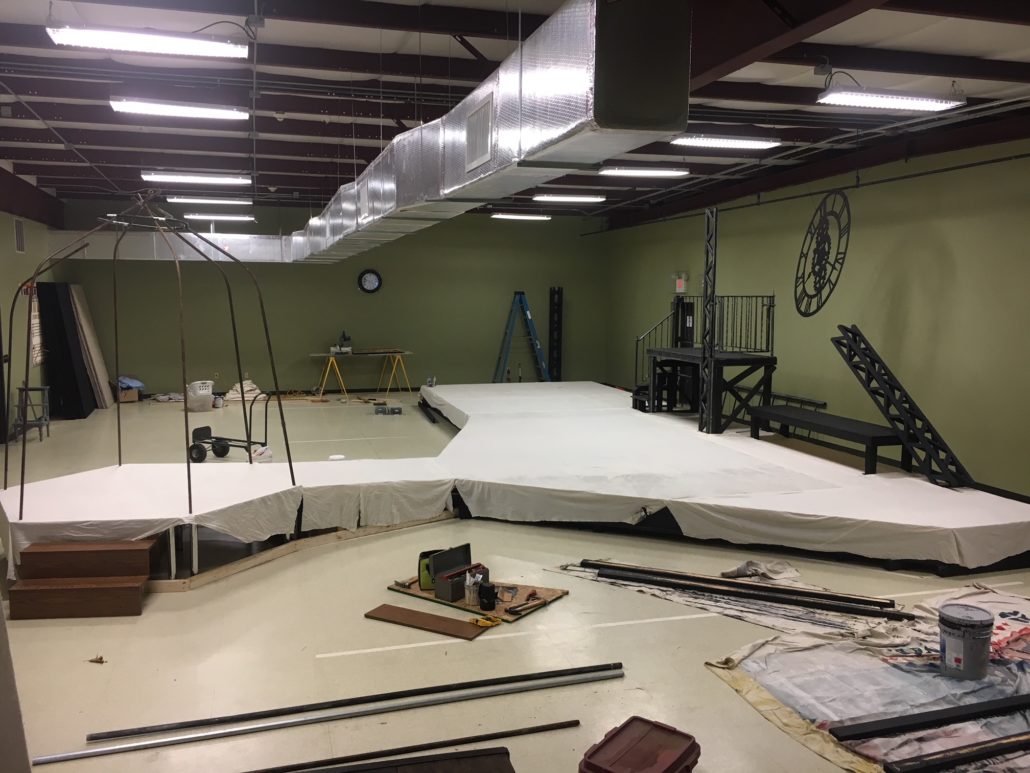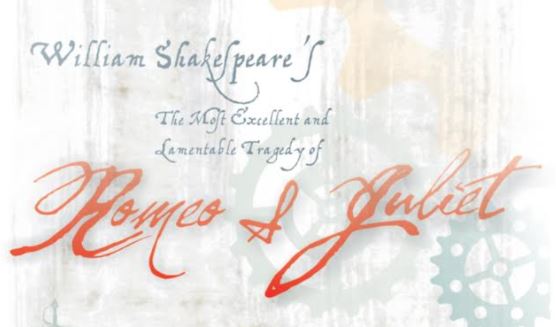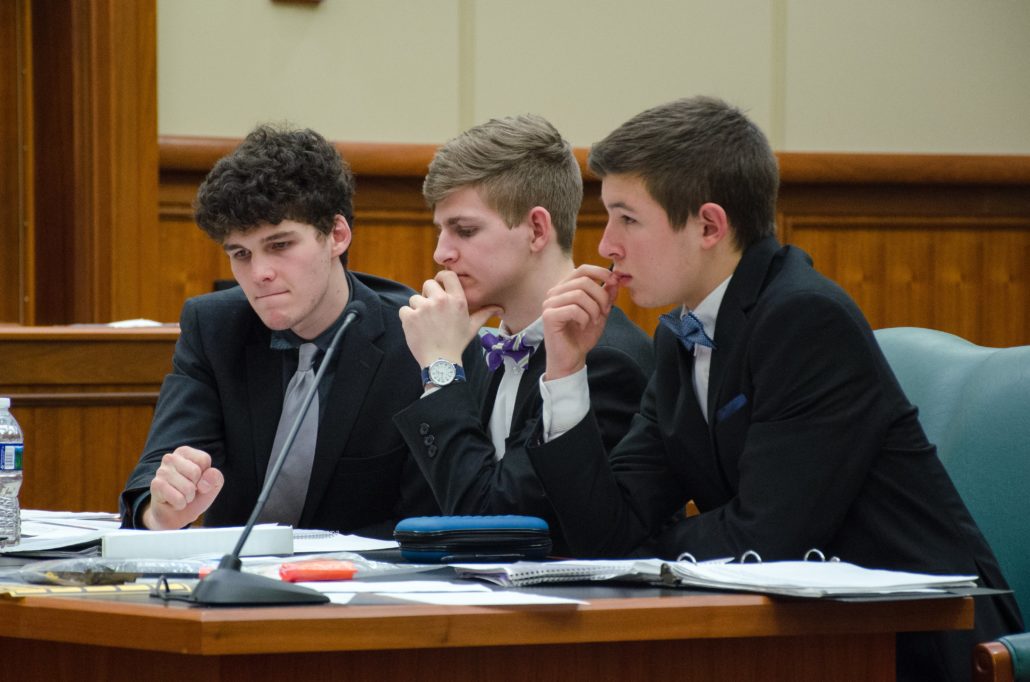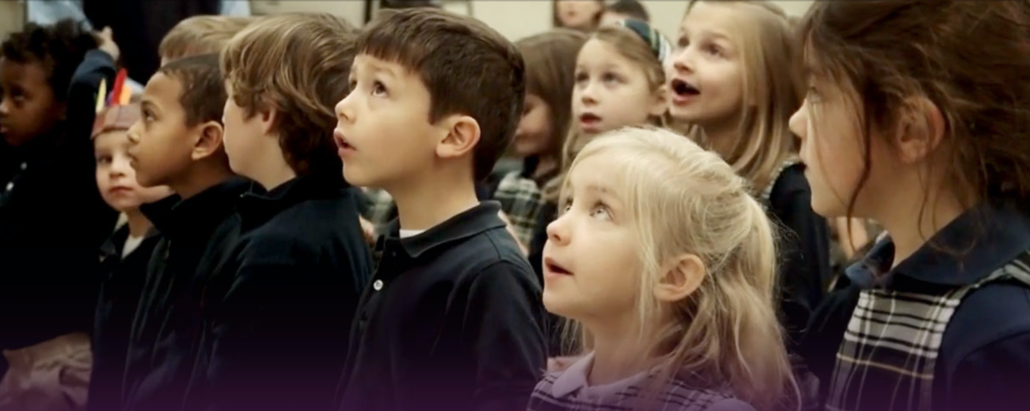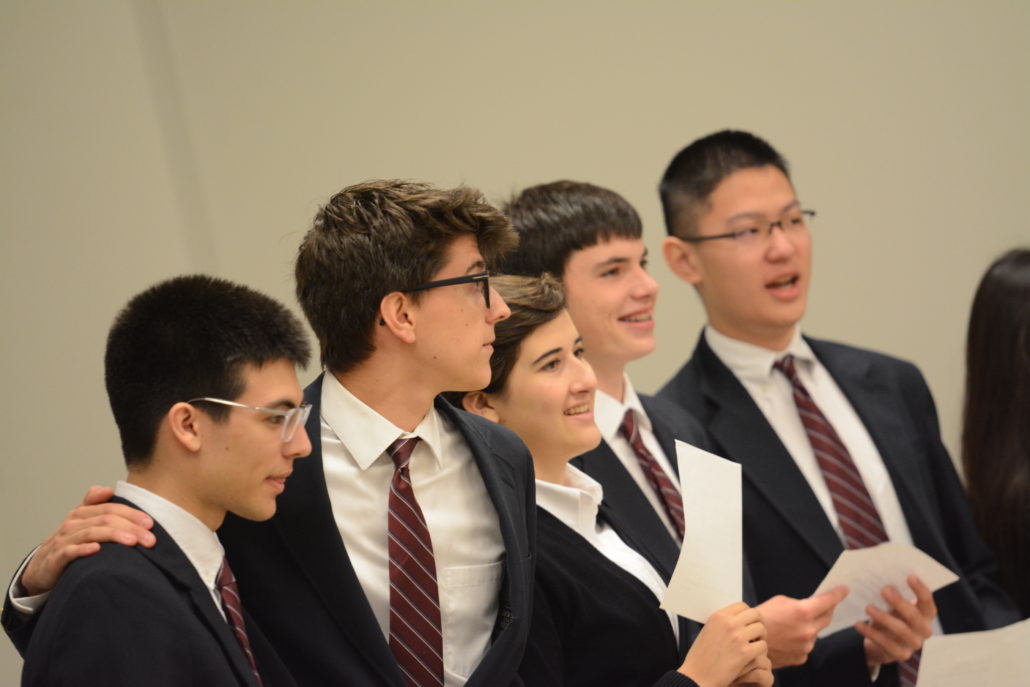Faculty Spotlight: Getting to Know Beth Miller
Beth Miller joined our Upper School faculty in 2017 and was recently appointed as our Lead Science Teacher. She came to Covenant with extensive experience as a teacher in homeschooling co-ops, teaching mathematics courses from Algebra through AP Calculus, and science classes such as Biology, Chemistry, and Physics. We thought that our families would enjoy getting to know her better so we have put together this profile.
Tell us about your family?
Rob and I have been married for 20 years. We met in college at Bucknell University where we both majored in engineering. Rob majored in civil engineering, and I majored in chemical engineering. We met through our involvement in the Christian fellowship on campus. We have 3 children: Jonathan, who is finishing up his freshman year at Drexel as a Finance major, Sarah, who is finishing up her junior year at Covenant, and Jacob, who is finishing up his 8th grade year at Covenant.
What attracted you to classical, Christian education?
I read a good bit about education as our children were approaching school age. I loved the idea of their education equipping them to give a reason for the hope that we profess in Christ and enable them to stand firm in their faith and not be blown about by the waves of the logic or passions of our culture. Classical Christian education seemed to be the best way to accomplish it. I particularly remember reading an essay by Dorothy Sayers and thought her descriptions of the trivium would fit well with the growth of a child.
How did you get interested in science? Tell us a little bit about your educational and scientific background.
I have always been fascinated by how things worked. I remember begging my parents for a computer at a young age…I’m dating myself, I guess. They were rare in households when I was in grade school. In school, I was good at math and science and my chemistry teachers in high school suggested that I combine them by pursuing a degree in Chemical Engineering. So off to college I went.
Bucknell proved to be a great place to learn. It’s a liberal arts school with a great reputation for engineering which is small enough to have lots of interaction between faculty and students. For my work/study jobs, I was fortunate to be able to do chemistry research with professors the first two years, and engineering research for the last two. Senior year I wrote and defended my honors thesis on a computer model for the school’s plate distillation column. I recently went back and was able to see the bound copy in the school’s library!
After graduation, I worked for Air Products and Chemicals doing process design. Basically, I was designing 5 story building sized refrigerators which we called cold boxes. Some turned natural gas into a liquid for shipping and others separated air into oxygen, nitrogen, and argon. I loved it. Most of my time was in modeling and design, but I also got to do a stint at a plant startup. A few years later, Rob and I got married, and then children came along. I began to work part time (still for Air Products) for a while and then quit to be with my kids full time.
How do you think your experiences working as an engineer have contributed to your classroom experience?
A lot! As I teach my students how to do experiments I’m mindful that their lab work has a goal…to discover things and make careful observations of God’s world. That is what research is. And all the properties that we learn about can be used to make our world better. Understanding them leads to inventions and to plants like I used to design, and, of course, cool classroom demonstrations. I am still fascinated by how things work. I want to instill in my students a curiosity about their world and a confidence that their God has hidden marvelous things for them to discover in the patterns and properties of the universe.
I’m also mindful that even science people need to communicate on paper and orally. I can tell my math students that they DO have to prove their answers with work…even engineers must prove that their designs will stand up or work. No one trusts even the most senior engineer without some work to back it up. The same follows in my math and science classes.
Working also provided me with some fun stories about playing with liquid nitrogen.
How were you involved in classical Christian education before coming to Covenant?
As I homeschooled my children, it became clear that for me to give them the kind of education I wanted I would have to partner with other families. Memorization is much more fun with other kids, and dialectic and rhetorical skills require that you have other people to bounce ideas off of. Also, there were some subjects that I needed help with (history is in the forefront of those!). So I started 2 different homeschool co-ops both of which were classical, Christian education co-ops. I directed the one which focused on grammar school for 8 years and was part of the managing board for the second after that. It made me look around to see what was possible for my kids. I was blessed to partner with some great people who helped me educate my children. In addition to being the Director of the Upper School there, I developed the science program for the 2nd-12th grade years and taught the upper school classes in Physical Science, Biology, Chemistry, and Physics…along with some Latin, math games, and SAT math prep. I loved watching the students grow as they came through the program. And I loved sharing my love for science with them.
In your opinion, what place should the sciences have in a classical, Christian education?
Although science is not the first thing you think of when you hear the words of the trivium: grammar, dialectic, and rhetoric, it provides a great vehicle for practicing those skills. Science is part of the wonder that we want to instill in the grammar school children…wonder at the amazing world God has designed. Logic is one of the hall marks of good science. Writing lab reports gives students a good opportunity to practice collecting data and proving what they claim to be true. Part of logic is understanding causes and effects, and again, science provides a perfect place to practice logic where questions starting with how and why help ferret out their understanding. Why does the pressure of a gas increase when the volume is decreased? How can the force of an impact be decreased? A good science class is full of opportunities to practice thinking well. Ernest Rutherford of the gold-foil experiment fame said (and I’m paraphrasing) that your scientific discovery was of no use if you could not explain it to a barmaid…which was his way of saying that knowing a thing was not much use if you could not communicate it to someone else; hence rhetoric is important.
Also, science is part of our world whether we know it or not. We want students who can think through which treatment for a medical condition would be best for them, or how to save money on their heating bills. They need to be able to discern if the person on the infomercial is peddling science or fish oil. We need students who can be a persuasive voice for ethical science which honors God. This means they need to understand science.
Finally, though the trivium does not include words that speak exclusively of science, looking further in classical education to the quadrivium (arithmetic, music, geometry, and astronomy) does. It shows that classical educators were interested not just in science…but good cutting-edge science. Astronomy in the Middle Ages would have been like studying astro-physics or semi-conductor computer chips today. I would go so far as to say that science does not just have A place in classical, Christian education, but that it has an IMPORTANT place there. It trains our minds to think carefully and wonder greatly. I want my students to be able to say that they see the world differently after taking my classes.
As a somewhat new member of our community, what are some of the things that stand out to you about Covenant?
I have loved getting to know the people of Covenant. It is a wonderful place for me to work and for my kids to learn. One of the things I love is the rhythms that are knitted into the day to remind us of what is important: Loving God and honoring him with our time and talents. We do this in the Upper School through the morning Matins, praying and singing after lunch and again at the end of the academic day. I’ve loved seeing the care and thought that has gone into preparing the students to write and speak well and hearing about the discussions that my own children are having in their classes. There are some wonderful faculty members whom I am so thankful my children have the opportunity to learn from…who will inspire them to think about God’s world and what has happened in it. That doesn’t mean it is easy…but that it is shaping them into being those people that I talked about before who can give an answer for the hope that they have and discern the good from the bad in the winds that blow through our culture. I’m proud to be a part of it and have found several kindred spirits here. I’ve also been humbled by how much the parents contribute to the school. I’m so thankful to be in a place where MANY people are working to make Covenant a great place to learn.
I’ve also been having fun with all the toys in my lab! For someone who carefully purchased each piece of science equipment needed for my previous classes, it has been great fun to have such a well-stocked lab to work with. I have burettes, beakers, flasks, and pipettes aplenty.
What would you want your future students to know about your classes?
Hmmm…good question. I want my students to know that my classes are hard and that they are fun. And that I care about them. I want the students that have come through to tell those who are coming that the work is hard…the math can be difficult. But there are flying pigs to watch, raw eggs to toss, crash bumpers and airbags to design, soda cans to crush with atmospheric pressure, and dollar bills that are NOT consumed by flames. Because though science is hard…it is also fun.
When you’re not teaching at Covenant, what are some of your favorite things to do?
When I’m not teaching at Covenant, I enjoy being with my family. Taking my kids to their events and cheering them on is my mainstay. I also enjoy Boggle with Friends, and Sudoku (because…math and logic of course, but only the REALLY hard ones), and watching a good detective show with my husband.
Thank you for so faithfully teaching our students about God’s creation, Mrs. Miller! We so appreciate you.
